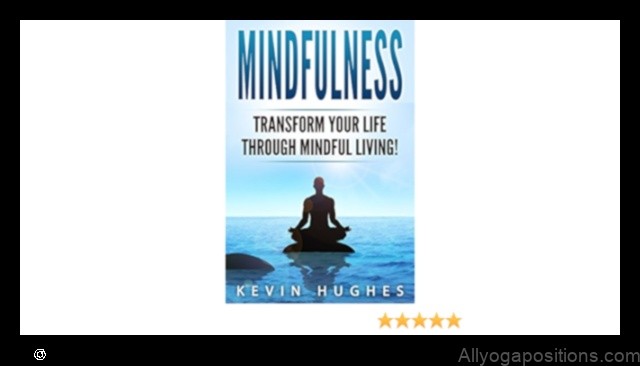
Mindful Living: Transforming Your Life Through Meditation
Mindful living is a way of living that is based on the principles of mindfulness meditation. Mindfulness meditation is a practice that helps you to become more aware of your thoughts, feelings, and bodily sensations in the present moment. When you are mindful, you are able to see things more clearly and make choices that are in alignment with your values.
There are many benefits to living a mindful life. Some of the benefits include:
- Reduced stress and anxiety
- Improved mood and self-esteem
- Increased focus and productivity
- Better relationships
- Improved sleep
If you are interested in learning more about mindful living, there are many resources available. You can find books, articles, and online courses on the subject. You can also find meditation teachers who can help you to learn how to practice mindfulness meditation.
Mindful living is a journey that takes time and practice. However, the benefits of living a mindful life are well worth the effort. If you are ready to start your journey to a more mindful life, here are a few tips to help you get started:
- Start by practicing mindfulness meditation for a few minutes each day.
- Pay attention to your thoughts, feelings, and bodily sensations as you meditate.
- Notice when you are caught up in the past or the future, and bring your attention back to the present moment.
- Be patient with yourself and don’t get discouraged if you don’t always get it right.
Living a mindful life is a lifelong journey. However, it is a journey that is well worth taking. When you live a mindful life, you are able to live more fully and authentically. You are able to experience more joy, peace, and happiness.
| Feature | Description |
|---|---|
| Meditation | A type of mind-body practice that involves focusing on the present moment and intentionally paying attention to your thoughts, feelings, and bodily sensations. |
| Mindfulness | A state of awareness that is characterized by paying attention to the present moment, without judgment. |
| Stress relief | Meditation and mindfulness can help to reduce stress levels by teaching you how to manage your thoughts and emotions more effectively. |
| Anxiety | Meditation and mindfulness can help to reduce anxiety levels by teaching you how to relax and focus on the present moment. |
| Self-awareness | Meditation and mindfulness can help you to develop a greater sense of self-awareness by teaching you how to observe your thoughts and feelings without judgment. |

II. What is mindful living?
Mindful living is a state of being present and aware of your thoughts, feelings, and actions. It is a way of living that is intentional and focused on the present moment. When you are mindful, you are not dwelling on the past or worrying about the future. You are simply paying attention to what is happening right now.
Mindful living is not about being perfect. It is about being aware of your thoughts and actions and making choices that are in alignment with your values. When you live mindfully, you are more likely to experience a sense of peace and well-being.
Mindful living is a practice that can be learned and cultivated. There are many different ways to practice mindfulness, such as meditation, yoga, and breathwork. You can also practice mindfulness in your everyday life by paying attention to your thoughts and feelings, and by being aware of your actions.
III. Benefits of mindful living
Mindful living has been shown to have a number of benefits for both physical and mental health. These benefits include:
- Reduced stress and anxiety
- Improved sleep
- Increased focus and attention
- Improved mood
- Reduced pain
- Enhanced immune function
- Increased self-awareness
- Improved relationships
Mindful living can also help to improve our overall quality of life by helping us to live in the present moment and to appreciate the simple things in life.
What is mindful living?
V. Challenges of mindful living
There are a number of challenges that can come with practicing mindful living. These include:
- It can be difficult to stay focused on the present moment.
- Mindfulness can bring up difficult emotions or memories.
- Mindfulness can be challenging to practice in a busy or stressful lifestyle.
However, it is important to remember that these challenges are all part of the process of learning to live mindfully. With practice, it is possible to overcome these challenges and reap the benefits of a mindful life.

VI. How to overcome the challenges of mindful living
Mindful living can be challenging, but it is also very rewarding. There are a number of ways to overcome the challenges of mindful living, including:
- Practicing regularly. The more you practice mindfulness, the easier it will become to maintain a mindful state of mind.
- Being patient with yourself. It takes time to develop a mindfulness practice. Don’t get discouraged if you don’t see results immediately.
- Finding a supportive community. There are many resources available to help you learn and practice mindfulness, including books, online courses, and meditation groups.
- Adjusting your expectations. Mindfulness is not about being perfect. It’s about being present and aware of your thoughts and feelings.
If you are struggling to overcome the challenges of mindful living, it is important to be patient with yourself and to seek out support from others. With practice, you will be able to live a more mindful life.
Tips for incorporating mindful living into your daily life
Mindful living is a practice that can be incorporated into your daily life in many ways. Here are a few tips to get you started:
- Start by taking a few minutes each day to simply sit quietly and focus on your breath. This will help you to become more aware of your thoughts and feelings, and to let go of any stress or anxiety that you may be carrying.
- Be mindful of your actions throughout the day. Pay attention to the way you feel when you eat, brush your teeth, or walk to your car. Notice the sights, sounds, and smells around you, and appreciate the present moment.
- When you are faced with a difficult situation, take a few deep breaths and try to see the situation from a different perspective. This will help you to respond to the situation in a more mindful and compassionate way.
- Mindful living is a practice that takes time and effort. Don’t get discouraged if you don’t see results immediately. Just keep practicing, and you will eventually start to see a difference in your life.
VIII. Resources for learning more about mindful living
There are many resources available to learn more about mindful living. Here are a few of the best:
- Mindful.org: This website offers a variety of resources on mindful living, including articles, videos, and courses.
- Tara Brach: Tara Brach is a leading teacher of mindfulness meditation. Her website offers a wealth of resources, including guided meditations, talks, and workshops.
- Mindfulness-MBSR.com: This website offers a comprehensive introduction to mindfulness-based stress reduction (MBSR), a type of meditation that has been shown to reduce stress, anxiety, and depression.
- UCLA Mindful Awareness Research Center: The UCLA Mindful Awareness Research Center offers a variety of resources on mindfulness meditation, including research studies, articles, and workshops.
IX. FAQs about mindful living
Here are some frequently asked questions about mindful living:
-
What is the difference between mindfulness and meditation?
-
How do I practice mindful living?
-
What are the benefits of mindful living?
-
What are the challenges of mindful living?
-
How can I overcome the challenges of mindful living?
-
How can I incorporate mindful living into my daily life?
-
Where can I learn more about mindful living?
X. Conclusion
Mindful living is a practice that can help you to live a more present, intentional, and fulfilling life. By incorporating mindfulness into your daily life, you can learn to manage stress, reduce anxiety, and improve your overall well-being.
If you are interested in learning more about mindful living, there are many resources available to you. You can find books, articles, and online courses on the topic. You can also attend meditation classes or workshops.
Mindful living is a journey, and it takes time and practice to develop the skills necessary to live a mindful life. However, the benefits of mindful living are well worth the effort.
FAQs about mindful living
Q: What is mindful living?
A: Mindful living is a practice that involves paying attention to the present moment, without judgment. It is about being aware of your thoughts, feelings, and bodily sensations, and accepting them without trying to change them.
Q: What are the benefits of mindful living?
A: The benefits of mindful living include:
- Reduced stress and anxiety
- Improved mood
- Increased self-awareness
- Improved relationships
- Better sleep
Q: How can I practice mindful living?
A: There are many ways to practice mindful living. Some simple ways to get started include:
- Taking a few deep breaths and paying attention to your breath as you inhale and exhale.
- Concentrating on your senses, and paying attention to what you see, hear, smell, taste, and feel.
- Being aware of your thoughts and feelings, and accepting them without judgment.
You can also find many books, articles, and online courses on the topic of mindful living. You can also attend meditation classes or workshops.
Table of Contents
Maybe You Like Them Too
- Find your center with these 10 yoga poses for equilibrium
- Meditation for Productivity 5 Ways to Enhance Focus and Efficiency
- A Guide to Exploring Different Yoga Styles From Hatha to Vinyasa and Beyond
- Mindful Muse Yoga for Creative Expression Balanced Approach to Unlock Your Full Creative Potential
- The Dance of Shiva A Dynamic Yoga Journey Through the Chakras
